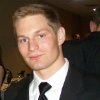PHY 440 - Electronics
Spring 2014
PHY 440 - Electronics |
Spring 2014 |
 |
Pawel
Danielewicz, Professor Email: danielew@msu.edu Phone: (517) 908-7330, 5-9672 x 330 from campus Office: 2057 Cyclotron Office hours: Mon 11:00-12:00 in 1254 BPS & by appointment |
 |
William
Hartmann, Professor Email: hartmann@pa.msu.edu Phone: (517) 355-5202 Office: 171 Giltner Hall Office hours: Wed 10:00-11:00 in 171 Giltner Hall |
 |
Justin Estee, Teaching Assistant Email: estee@nscl.msu.edu Office: 2063 Cyclotron Office hours: Tue 10:00-11:00 in 1254 BPS |